- About Us
- Policy Center
- Learn
- Press Room
- Blog
- Get Involved
- Donate
- Donate to J Street Online
- Make a Gift in Someone’s Honor or Memory
- Make a Monthly Gift
- Tax-Deductible Donations
- Giving by mail
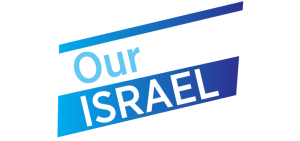
J Street is proud to stand with pro-peace Israeli organizations who do amazing work to create a better future for Jewish Israelis, Arab Israelis and Palestinians. As part of a series of profiles focused on our progressive Israeli partners we spoke with Adi Maoz, Executive Director of Kav LaOved, the Worker’s Hotline.
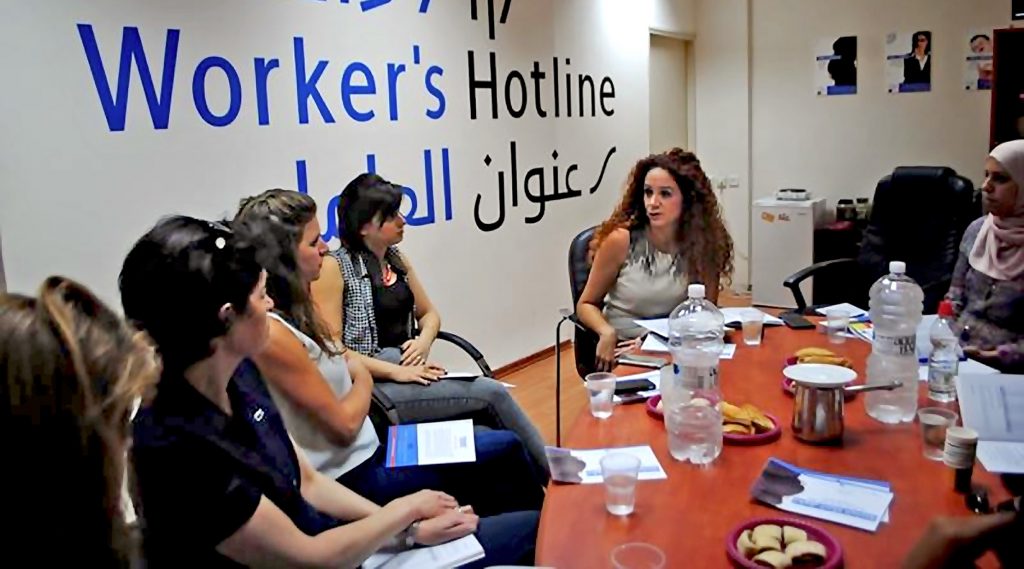
It’s Monday in Tel Aviv and Kav LaOved volunteers are triaging dozens of employment issues brought to them by caregivers. On Tuesday, the whole day is devoted to workers who are refugees or asylum seekers. Wednesday is set aside for Israeli workers and agricultural workers. Thursday is for housecleaners. In Nazareth, their office focuses on construction and workplace safety and runs a hotline for Arab workers. Speaking Hebrew, English, Arabic, Russian, Romanian and Thai, caseworkers will listen to their issues and offer guidance based on Israeli labor law and decades of experience.
“The extent of the work is massive,” says Adi Maoz, Kav LaOved’s Executive Director. “We have pamphlets in over 40 languages which we communicate to workers with.”
Since 1991, Kav LaOved (‘Worker’s Hotline’) has fought to protect the rights of disadvantaged Israeli, Palestinian and migrant workers. Their vision is an Israeli society in which workers — regardless of nationality, gender, religion or legal status — are respected, valued and have their rights protected. “It’s a struggle for people to be treated equally as human beings rather than products to be used,” Maoz says.
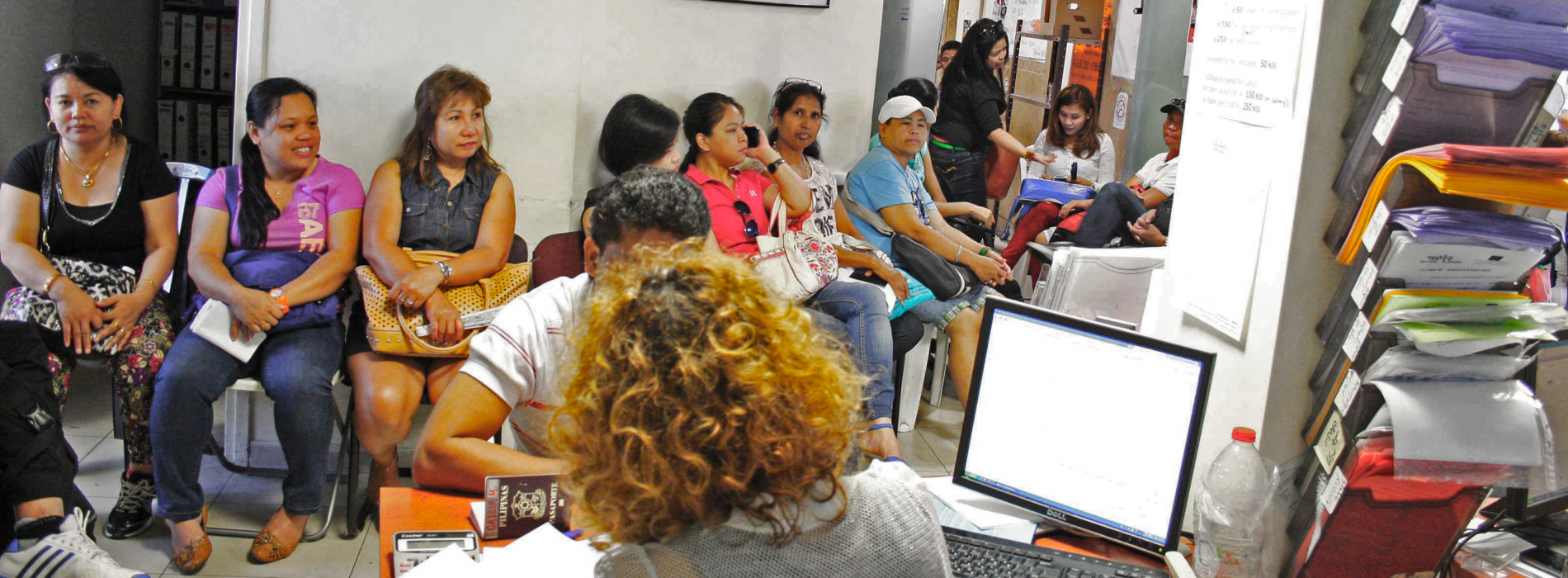
Last year, the group helped workers recover over 41 million shekels in unpaid wages and benefits. Thousands of workers sought help, including Israelis, Palestinians and migrant workers and refugees from as far afield as Thailand, India and Ukraine. Their challenges ranged from sexual harassment to underpayment, unpaid compensation to unsafe work environments.
But for Adi Maoz — who has been involved in civil society and social protest movements since her early twenties — Kav LaOved is about more than enforcing labor rights, it’s about social inclusion and the character of Israeli society. “One of the main struggles we have in Israel is a question of who belongs here, who’s part of our society, who has ownership, who can define this place,” she says. “Work is such a dominant part of people’s lives.”
Despite a stalled peace process, high levels of partisanship and the turbulence of recent political events, Maoz says workers’ rights are an area where progress can still be made. “Victories are still possible in this political climate,” she says. “What drives me and a lot of us is the fact that we believe in the place that we’re living in, and we have the strength and the ability to change it.”
Maoz runs a team of 20 to 30 full-time and part-time staff, aided by roughly 100 volunteers, with a budget of just 4 million shekels. In the West Bank, roving staff give presentations to Palestinian workers about their rights. In Tel Aviv, Haifa and Nazareth, Kav LaOved’s offices are packed full of workers, most of them women.
New mothers ask about maternity rights. Anxious migrant workers seek advice on visa issues. Injured construction workers inquire about compensation. Caregivers ask for advice on dealing with sexual harassment.
But Kav LaOved not only assists with individual cases, it also pursues systemic change through political advocacy, the courts and data collection.
Several years ago, the group started monitoring workplace accidents in the construction industry, a sector dominated by Palestinian day laborers. The project has since evolved into a database on injuries and fatalities across every sector. “It’s now actually used by government agencies and officials because it’s the only reliable and accessible source of information,” Maoz says.
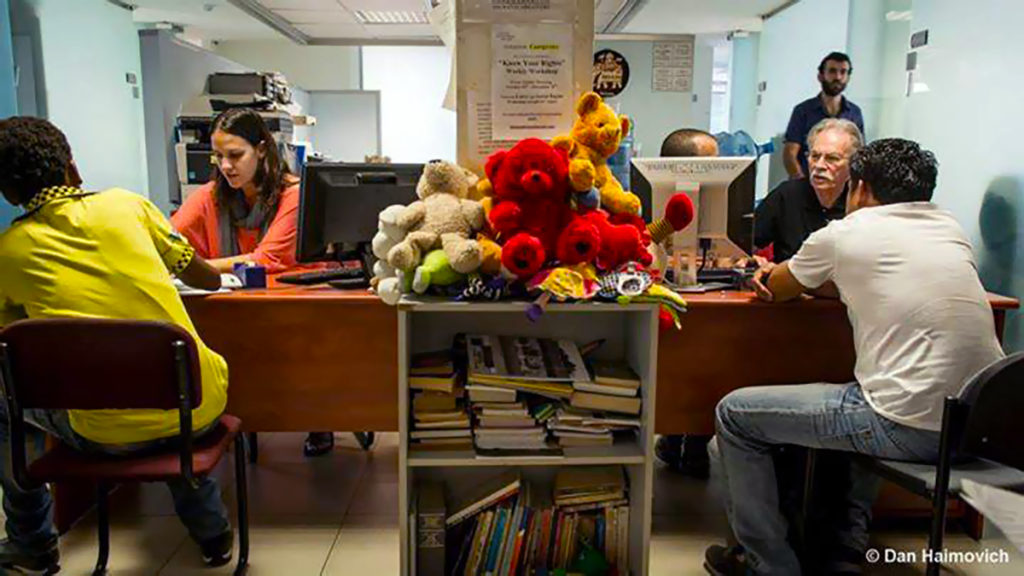
The data Kav LaOved gathers and publishes – and the thousands of cases they assist with – is closely connected to their advocacy and legal strategies as well.
After years of Palestinian day-laborers facing exploitation through binding, company-specific visas, Kav LaOved has helped push the government to trial industry-wide visas to give workers more freedom to move between employers.
After seeing numerous cases of migrant workers paying exorbitant ‘brokerage fees’ and being treated as indentured servants, Kav LaOved joined with legal groups to lodge a petition with the Supreme Court to block the practice.
And while their casework is assisting individual asylum seekers in the face of widespread underpayment by their employers, a Kav LaOved lawsuit is making its way through the courts to block the law which makes it possible.
This integration of grassroots casework, political campaigning and legal advocacy is a unique strength of the organization, Maoz says. “Our shadow is bigger than what we are, people see us as a powerful force,” she says. “People know that we’re going to be there to defend workers’ rights.”
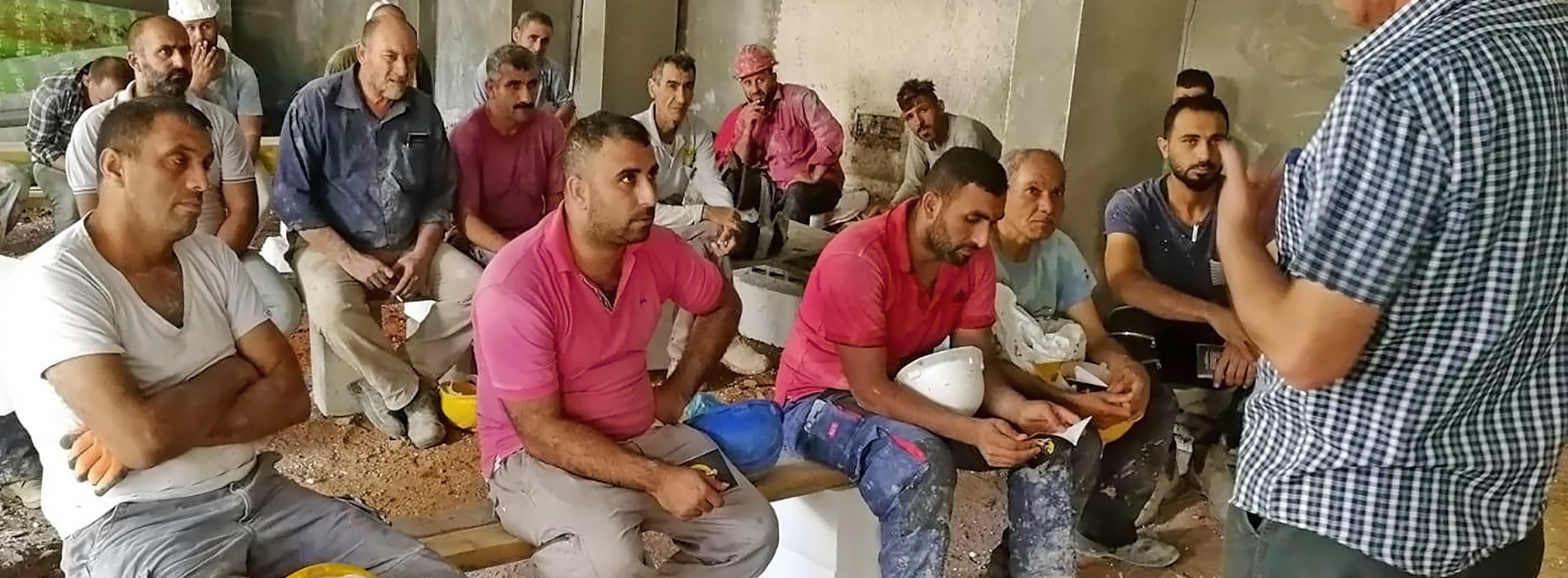
It’s work which extends deep into the Palestinian territory as well, where Kav LaOved has partnered with Palestinian labor unions and has deployed regional coordinators for Palestinian workers in Israeli settlements in the West Bank. Of particular focus has been the construction industry, which employs the vast majority of Palestinian day-laborers and in which dozens die each year in workplace accidents.
Through Kav LaOved’s data collection, they found that 60% of construction site fatalities were a result of high-level falls. It’s a statistic that has helped inform their campaign for construction worker safety — a project which is part political advocacy, part public information campaign.
On construction sites, advocates speak with workers about their rights and the importance of safe practices. On social media, Kav LaOved posts hair-raising videos of unharnessed workers at precarious heights, tragic personal profiles of workers killed on construction sites and statistics which demonstrate the appalling scale of the problem.
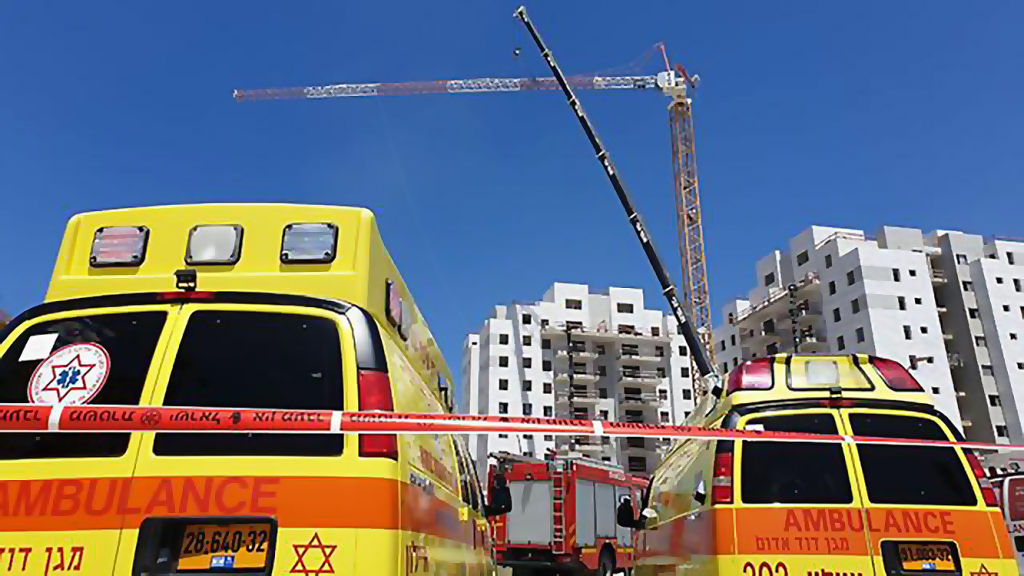
Despite current fractures in Israeli politics, Kav LaOved’s progressive mission retains a broad base of public support. “Being exploited in your workplace, or being humiliated in your workplace, is something people can relate to on an individual level,” Maoz says. “People understand that when you’re assisting a Palestinian worker and a migrant worker, you’re also defending the integrity of the whole of the labor force.”
From sexual assault in the workplace to gender parity in occupational health research, workplace safety to visa exploitation, there remains much work to be done — and that’s what drives Maoz and her team. “At the end of the day it’s a struggle for the place we want to live in,” she says, “and there’s no hope unless you’re in there trying to change it.”
J Street is at the forefront of a political movement to push back against the Trump-Netanyahu agenda and lay the groundwork for a new era of progressive, values-driven diplomacy-first American leadership.